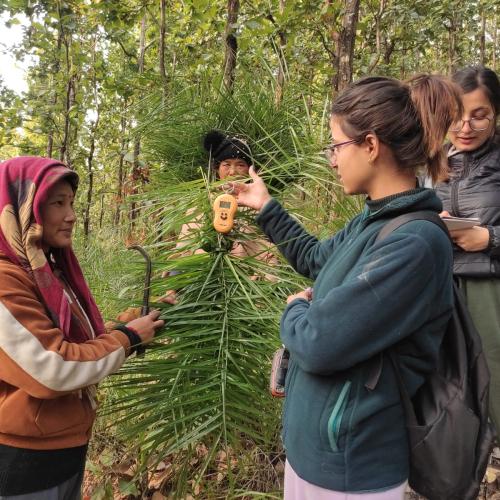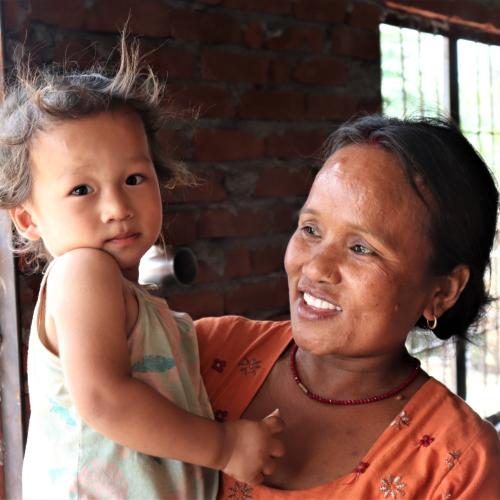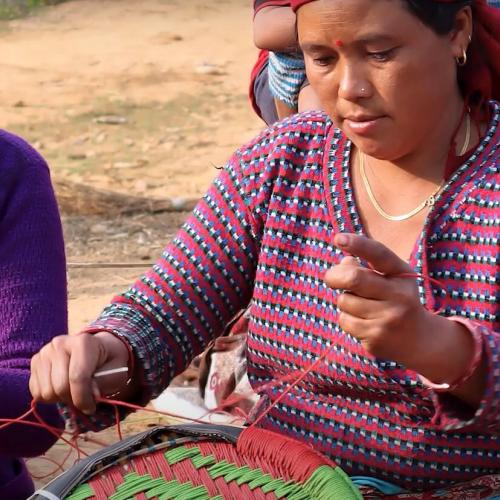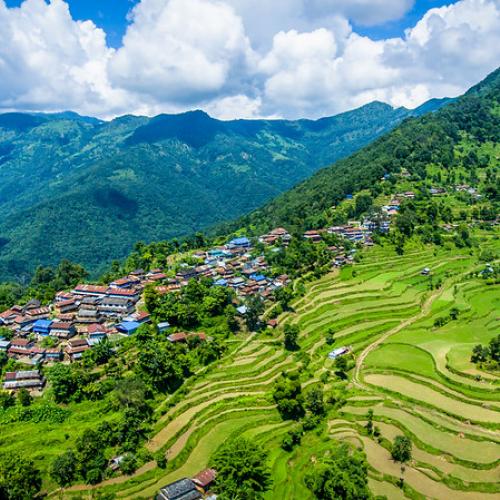Economic empowerment of women through forest solutions
Context
Approximately 45% of Nepal's landmass is covered by forest. The forest offers ample opportunities for forest-based business through promoting a low-carbon economy. However, Nepali society is highly patriarchal and dictates discriminatory socio-cultural norms and legal and institutional structures.
A high number of women are engaged in natural resource-based production systems, yet their ownership and decision-making remain minimal. Women have limited access to credit, extension services and social-protection mechanisms, which exacerbates women's vulnerability to climate change, disasters and shocks like the Covid-19 pandemic. Women are disproportionately affected because of the inequitable distribution of rights, assets, resources and power, specifically Indigenous groups, Dalits (otherwise known as the ‘untouchables’), the land poor and land less, women with disabilities, and single and widowed women.
The Government of Nepal provides several policies and measures to address gender discrimination. The Constitution of Nepal (2015) offers equal inheritance rights for women, including the right to participate in all State bodies. 50% women participation is ensured in community-forest management, and tax subsidies are provided to promote women-owned capital and land. Despite these affirmative policies, structural barriers remain strong. Women face legal hurdles to register private forests, register forest-based businesses and finance their enterprises.
In this context, enhancing women's leadership and economic opportunities in forestry through improved nature-based management would provide a stable income for women, and increase their safety net to absorb climate shocks and build resilience.
The project
The Economic Empowerment of Women through Forest Solutions project aims to increase women's access and control over forest resources and forest-based businesses. The project engages women in policy dialogues to ensure provisions that secure their representation and leadership to address unequal power structures in overall forestry management.
Objectives
To generate evidence-based knowledge for women’s economic empowerment through low-carbon, forest- and nature-based entrepreneurial solutions that enhance women’s resilience against climate change and Covid-19. Specifically, the project intends to:
- Increase women’s equitable access to and control over forest resources, income, capital, services, technology, business and benefits, transforming their well-being;
- Strengthen women’s agency in private and public affairs through technical and managerial skills and political engagement in production organisations and associated federations;
- Support sustainable management of forest and forest-based businesses; and
- Create an enabling policy and institutional environment that supports women-led forest management, trade and enterprises.
Partners
The project is implemented by a consortium of ForestAction Nepal, the Himalayan Grassroots Women’s Natural Resource Management Association (HIMAWANTI), the Association of Family Forest Owners, Nepal (AFFON) and the Federation of Forest-based Industry and Trade, Nepal (FenFIT-Nepal).
Activities
The project plans to undertake the following activities:
- Enhance women’s collective agency to influence the inclusion of women's differential needs and address discriminatory norms through trainings, dialogues, exposure, coaching and networking.
- Enhance women’s capacity on legal ownership, enterprise development, market negotiations and financing networks, and providing seed funding for testing models of micro and small-scale forest-based businesses, in order to diversify women's livelihood opportunities and income.
- Carry out evidence-based policy advocacy to increase ownership and tenure rights of women to land, forests and other productive assets; income-generation activities; access to capital, financial services, information and technologies; and women’s networks and engagement with the private sector.
- Conduct public stakeholder meetings with local governments to bridge the gap between local policy-makers and women entrepreneurs to identify and share gaps in policy provisions.
Contact
Dr Srijana Baral, ForestAction Nepal - srijnabaral@gmail.com
Kanchan Lama, ForestAction Nepal - kanchan.lama01@gmail.com





